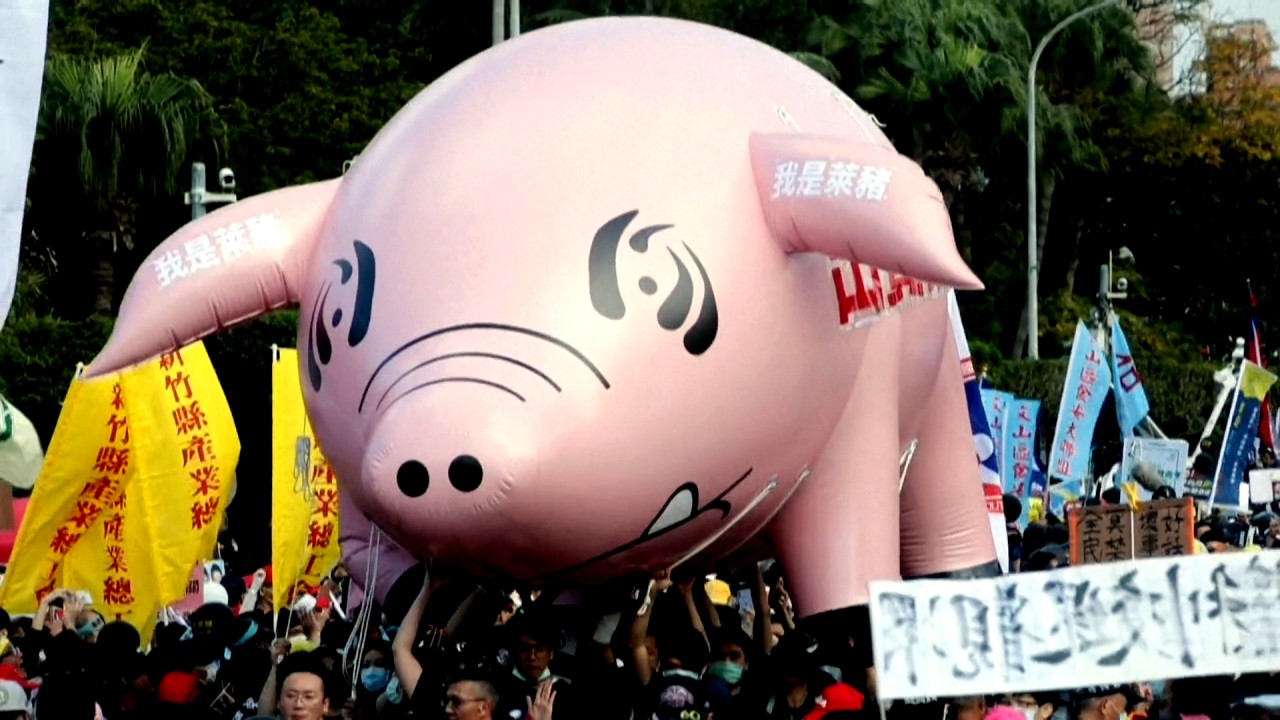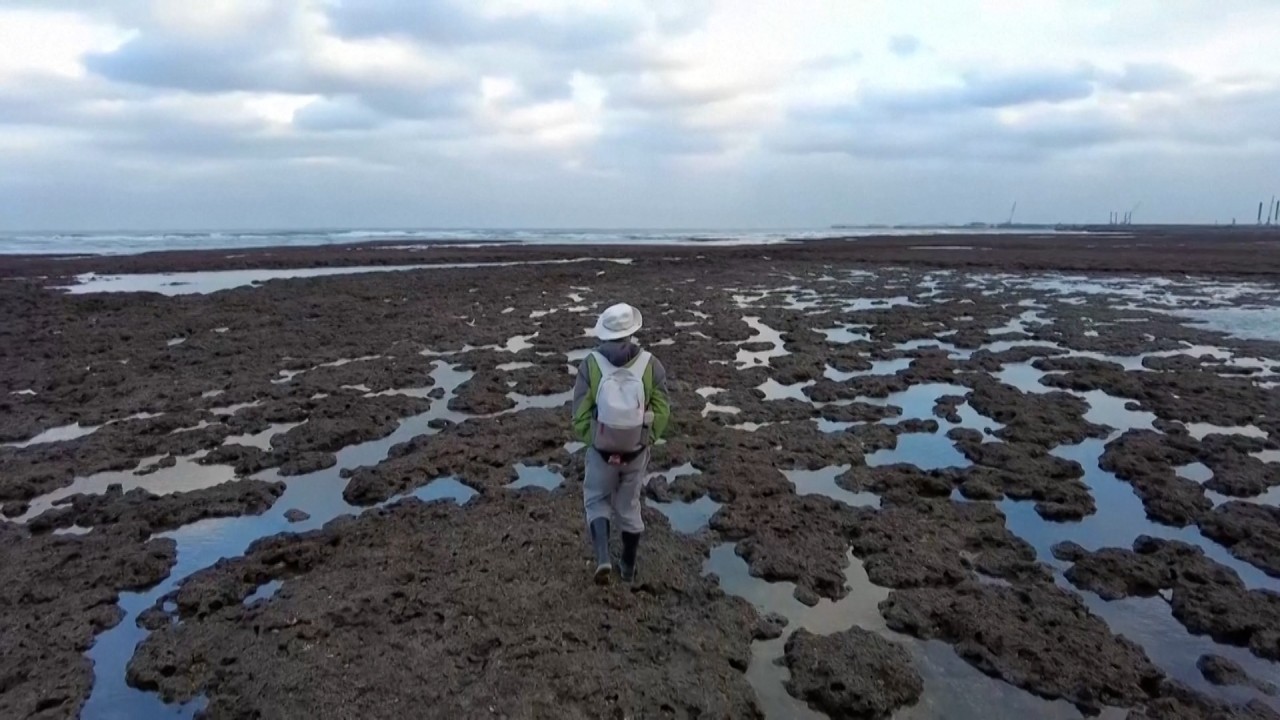
Taiwan referendum boost for President Tsai Ing-wen as voters reject proposals pushed by opposition
- Four proposals covering energy, trade and electoral law all voted down in election that highlighted island’s political faultlines
- Failure is blow to opposition KMT, but analysts say low turnout means Tsai’s DPP had only been able to motivate its core vote
Saturday’s polls, which were seen as a test of public confidence in Tsai and her government, saw no votes for all four proposals amid a lower-than-expected turnout of around 41 per cent.
A referendum on four proposals puts Taiwan’s Tsai in the hot seat
According to the Central Election Commission, less than 4 million voted in favour of the proposals, with around 4.1 million voting against.
Even if voters had backed the proposals, they would not have passed the threshold needed to succeed.
Under Taiwanese law, a referendum succeeds with a simple majority of at least a quarter of eligible voters, numbered at close to 20 million this year – which means they would have needed to secure 5 million valid votes to be adopted.
Most opinion polls had predicted there would be more than 50 per cent voter turnout and that the KMT had a better chance of success.
The civic groups backing the proposal said the shortages had not only resulted in periodic blackouts in recent years and affected the daily life of the public but had also threatened industrial production, including the output of hi-tech companies.
The Tsai government maintained that not only was there nowhere on the island to dispose of the nuclear waste from the plant, the long-mothballed facility was in an earthquake zone and highly risky to restart.
The second question called for the protection of an algal reef in Taoyuan where the government wants to build a liquefied natural gas terminal – a facility that could harm various aquatic wildlife, including some endangered species.
The government said the LNG terminal was necessary to ensure power supplies but others accused the president of breaking her previous campaign promise on environmental protection.

Tsai lifted the ban in January, citing requests from the United States and the need to remove trade restrictions to qualify for membership of regional trade blocs. The opposition Kuomintang called for the ban to be reinstated on food safety and public health grounds.
The electorate was also asked whether future referendums should be held at the same time as elections for public office.
The KMT said the move would cut costs, while the Tsai government said it would lead to confusion.
Although Tsai and the ruling Democratic Progressive Party had secured the result they wanted, it was “not an impressive victory”, said Wang Kung-yi, director of the Taiwan International Strategic Study Society, a Taipei think tank.
“The results of the vote show that the party – which received just a little more than 4 million ballots – was only able to secure its core support base,” he said.
Tsai and her DPP were accused of using government resources to prevail, including introducing key performance indicators to evaluate whether government and party officials had done enough to successfully convince the public to vote “no”.
Tsai and the DPP had also been criticised for characterising the referendum as a vote on whether Taiwan would be swallowed up by mainland China – a tactic the mainland’s Taiwan Affairs Office said was designed to scare the public and promote anti-China sentiment.
At a rally in the southern city of Tainan last Sunday, Tsai said reinstating the pork ban would have a serious impact on Taiwan’s economy and trade relations with the US.
She also said it could lead to growing economic dependence on the mainland – which had long been the island’s largest importer. Exports to the mainland accounted for 43.9 per cent of the island’s total last year, up 14.6 per cent over 2019, according to government figures.

After casting her ballot in New Taipei City on Saturday, she said the proposals would decide Taiwan’s future development and affect its international trade and relations.
Max Lo, a researcher of the Centre for Advanced Technology at Tamkang University in Taiwan, said the lower-than-expected turnout indicated that both the KMT and the DPP had failed to sway neutral voters.
“Many voters were either not familiar with the proposals or unhappy with the fact that the referendums were turned into a political face-off between the KMT and the DPP,” Lo said.
Taiwan to seek closer ties with Lithuania as dispute with Beijing deepens
“The results will also affect the morale of the KMT in next year’s local government elections,” he said.
Chu, who had argued a yes vote was the best way of convincing Tsai her policies were wrong, conceded defeat, saying he would take responsibility for the failure.



